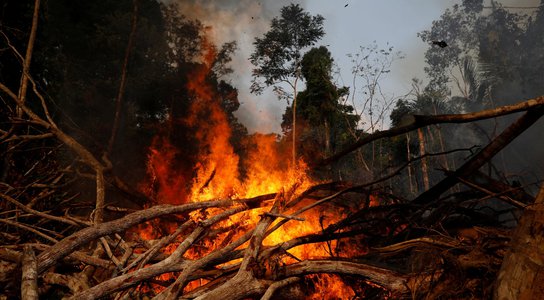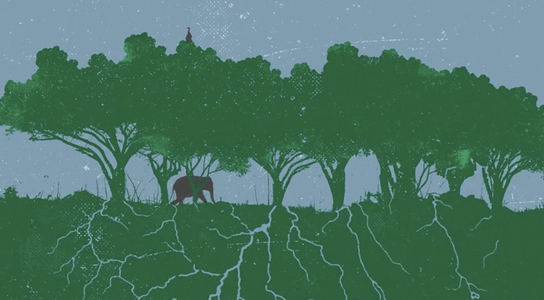Two of the most important laws that govern the Chinese
banking sector are due to be revised. China faces a real opportunity to ensure
its banks are not putting money where it can harm people, the planet, or
exacerbate the climate crisis.
In October, the People’s Bank of China, China’s central bank, launched a public consultation on its draft revision proposal of the laws covering the central bank and commercial banks. Global Witness would like to see the laws explicitly require the banking sector to not to finance business that can cause damage on the environment or the society, commitments that can be transformative in achieving China’s green ambition.
We have since submitted a detailed response calling for these laws to require both the central bank and commercial banks to incorporate environmental and social risks in their prudential framework and risk management, take mandatory steps to screen out such risks, and to publicly disclose such risks and measures taken to mitigate them.
Why is this important?
What do banks have to do with climate change, biodiversity loss and human rights abuses? As it turns out, quite a lot. We have previously revealed that major international banks were among the global financial giants that directly or indirectly provided tens of billions of US dollars to companies responsible for destroying the world's largest rainforests between 2013 and 2019. Major economies like the EU are considering legislative measures to address the financial sector’s exposure to deforestation and social harms.
Major Chinese commercial banks are already the world’s largest banks by total assets. Like their Western peers, they provide a lifeline to all sorts of economic activities, including those that are at high risk of damaging our future. In 2018, a Chinese NGO brought a landmark case against two Chinese banks for financing a polluting enterprise. Various Chinese banks have received administrative fines for financing companies that have failed environmental inspections. Recent data also shows that Chinese financial institutions keep financing fossil fuel companies, and their support for producing commodities that are at high risk of driving deforestation is actually increasing.
China has made quite a big effort to guide its banking sector to support greener business operations. However, at present, its green finance system mostly utilises tools at the soft law level – eg departmental rules and policies – which often lack corresponding legal responsibility provisions. Some of the policies or rules contain prohibitive clauses, but provide no liability provisions or at best very vague provisions.
Green finance policies and rules are not enough to hold the banks accountable. It is critical that laws are revised to define the banks’ environmental responsibilities and propose sufficient penalties for inaction or violation. The two laws governing the central bank and commercial banks need to align with existing green finance policies, as well as with other laws such as the Environmental Protection Law, which states that “all units and individuals shall have the obligation to protect the environment…shall prevent and reduce environmental pollution and ecological destruction, and shall bear the liability for their damage caused by them”.
What happens next?
The People’s Bank of China’s consultation has now closed, although it has the option of initiatinganother round of public consultation before handing over its proposals to the National People’s Congress (NPC), China’s law-making body, for consideration. More may be known by Spring 2021, when the NPC is expected to publish its legislative timetable for the coming year.
As China prepares to host a UN summit on Biodiversity in
2021 – all eyes will be on how China intends to follow through on President
Xi’s September announcement that the country will achieve carbon neutrality by
2060. However, China’s green ambition will not be realised if its banks keep
pouring money into activities that harm the environment and exacerbate the
climate crisis, rather than towards those that build sustainable, resilient
supply chains.

